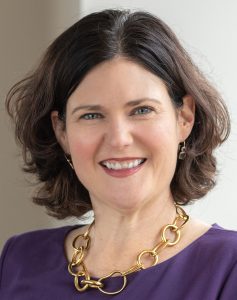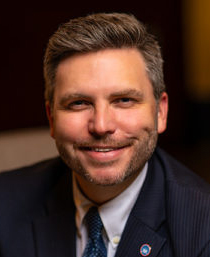In a rare unanimous decision, the U.S. Supreme Court June 29 found a compromise on a thorny religious liberty claim: What constitutes “undue hardship” on an employer required to accommodate a worker’s religious practices?
Rather than unwinding legal precedent — even if some of that precedent has been deemed imprecise — the high court offered some clarifications that drew widespread praise from many religious liberty advocates, although not all.
The case, Groff v. DeJoy, involves Gerald Groff, who was a part-time employee of the U.S. Postal Service working weekends only, who refused to work on Sunday because he observes that as his sabbath. At first, the postal service attempted to accommodate him, but in time it became more difficult because his absence placed a hardship on other employees.
Groff sued, claiming the First Amendment and previous case law required the postal service to accommodate his religious practice. The postal service said Groff’s demands created more than a “de minimis” burden on the employer.
That standard for determining such a line was set in a 1977 case called Trans World Airlines v. Hardison, which said employers may ignore employee requests for religious accommodation if granting the request “reasonably” would create an “undue hardship” on the employer. An “undue hardship” has been understood to be anything that would require more than a trivial or minimal cost.
Rather than throwing out that standard, the high court sent Groff’s case back to the lower court with some interpretation of what the standard means.
Rather than throwing out that standard, the high court sent Groff’s case back to the lower court with some interpretation of what the standard means.
“The court thinks it is enough to say that what an employer must show is that the burden of granting an accommodation would result in substantial increased costs in relation to the conduct of its particular business,” Justice Samuel Alito wrote for the court. “Courts must apply the test to take into account all relevant factors in the case at hand, including the particular accommodations at issue and their practical impact in light of the nature, size and operating cost of an employer.”
Alito added: “What is most important is that ‘undue hardship’ in Title VII means what it says, and courts should resolve whether a hardship would be substantial in the context of an employer’s business in the commonsense manner that it would use in applying any such test.”
Relevant to Groff’s particular case, the justices said: “Impacts on coworkers are relevant only to the extent those impacts go on to affect the conduct of the business. A court must analyze whether that further logical step is shown. Further, a hardship that is attributable to employee animosity to a particular religion, to religion in general, or to the very notion of accommodating religious practice, cannot be considered ‘undue.’ Bias or hostility to a religious practice or accommodation cannot supply a defense.”
One of the postal service’s primary defenses was that allowing Groff not to work on Sundays burdened his coworkers, who also would like to have a day off.
“Faced with an accommodation request like Groff’s, an employer must do more than conclude that forcing other employees to work overtime would constitute an undue hardship,” the ruling states. “Consideration of other options would also be necessary.”

Amanda Tyler
Amanda Tyler, executive director of Baptist Joint Committee for Religious Liberty, applauded the decision.
“A unanimous #SCOTUS clarified the standard to determine when employers need not accommodate an employee’s religious practice, to say that ‘undue hardship’ means ‘substantial increased costs in relation to the conduct of its particular business,’” she tweeted. “This decision is good news to help guard against religious discrimination in the workplace. How the lower courts apply this clarified definition will depend on the facts and circumstances of each case.”
BJC General Counsel Holly Hollman added: “This decision is a victory for religious minorities, who disproportionately claim the need for workplace religious accommodations. It provides guidance to lower courts to ensure the statute works as it was designed. ‘Substantial increased costs’ is an improved test for applying Title VII. … While there will certainly be future disputes, today’s unanimous decision points us in a positive direction where all Americans across ideological and religious differences can come together to defend faith freedom for all.”

Rachel Laser
Rachel Laser, president of Americans United for Separation of Church and State — a group that had taken a differing view than BJC in pretrial briefs — also found more good news than bad in the ruling.
“We’re facing an aggressive movement working to weaponize religious freedom, but religious freedom must never be a license to harm others, and that remains true in the workplace,” she said. “Today, in a unanimous opinion, the court ‘clarified’ the standard for granting religious accommodations without overturning precedent.
“Religious accommodations that don’t burden or harm others, like wearing a hijab or having a beard, or praying privately, are exactly what the law was designed to permit. In this case, however, Groff was hired as a part-time, flexible carrier at a four-person post office, and he refused to show up for 24 Sundays of work. He refused to work the same flexible schedule for which he was hired. This created huge burdens for the remaining (mostly Christian) employees and led them to resign, transfer, file grievances and cover for him while he, as he admitted, watched NASCAR on Sundays.
“Importantly, Groff has not won this case. We live to fight another day.”
“We argued that whatever standard the court adopted for workers seeking religious accommodations, the only way to ensure equality was to ensure that workers obeying the rules of their own religion do not harm others. If anything else were true, one religion would be superior to others. The court’s ‘clarified’ standard correctly allows employers to continue to consider the burdens an employee’s requested accommodation could impose on co-workers.”
The Supreme Court “refused to decide the specifics” of Groff’s case and sent it back to the lower courts, “which got this case right the first time around,” Laser said. “We live to fight another day.”

Brent Leatherwood
Brent Leatherwood, president of the Southern Baptist Ethics and Religious Liberty Commission called the ruling “a victory for every American.”
“Despite some voices saying that Mr. Groff sought exceptional treatment, the court saw through that to the truth of the matter,” Leatherwood said. “He simply asked for a reasonable accommodation to live out the tenets of his faith. The court has again affirmed the importance of living in accordance with one’s deepest-held beliefs.”
On the other hand, Geoffrey Blackwell, litigation counsel at American Atheists, criticized the decision as opening a wider door to discrimination.
“While today’s decision doesn’t give religious employees carte blanche in the workplace, it certainly continues this court’s recent practice of expanding loopholes, accommodations and ‘rights’ for the religious while shifting more burdens onto atheists, humanists and the nonreligious,” he said. “With the number of nonreligious Americans in the workplace on the rise, the idea that the government can force a business to favor religious employees over their nonreligious coworkers is deeply troubling.”
Groff was represented by the Texas-based First Liberty Institute, a $15 million Christian legal group founded in 1997 that claims to be “the largest nonprofit legal organization in the nation dedicated exclusively to defending religious liberty for all Americans.” The organization has its own strong of Supreme Court victories and has defended Christian cake bakers, praying football coach Joe Kennedy, private Christian schools seeking state funding, and U.S. military members who opposed mandatory COVID vaccines.
Related articles:
High court hears arguments in case that could redefine employers’ required religious accommodation
Broad coalition of religious liberty groups sides with former postal employee

